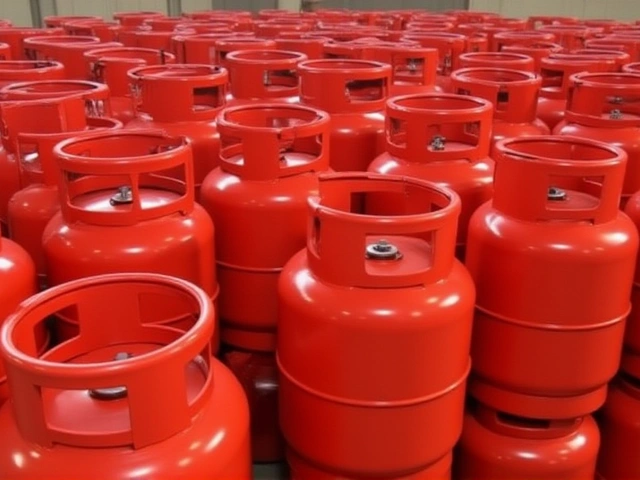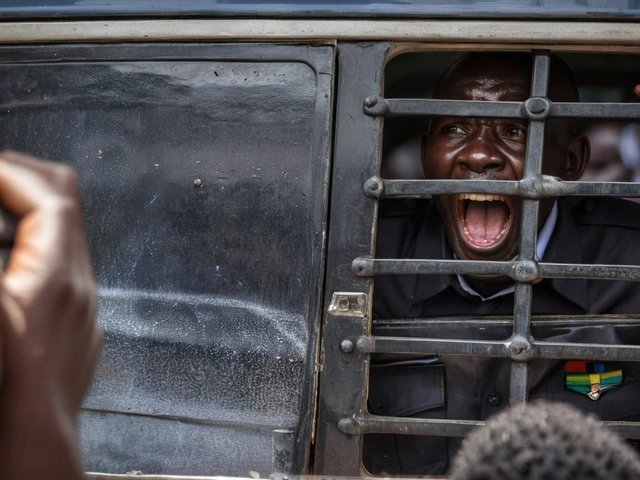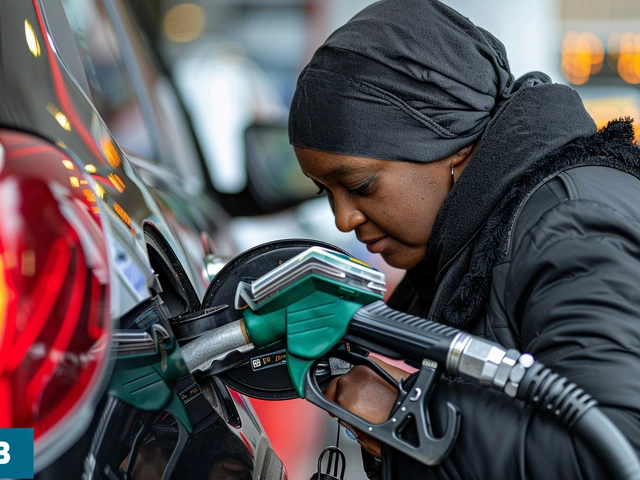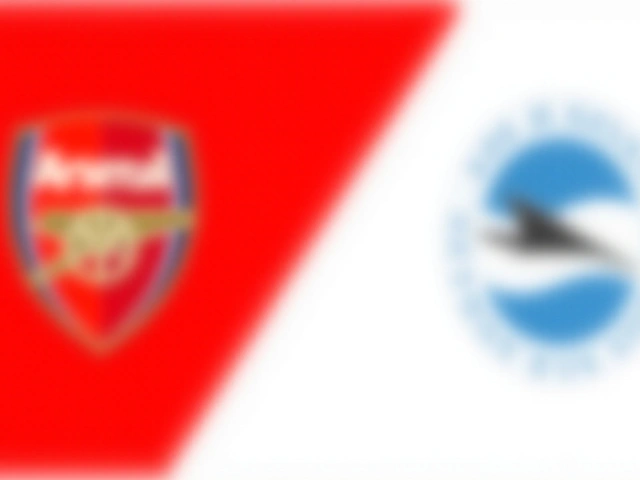
Background of Corruption Charges
In what stands as a significant blow to corruption's stronghold in Nigeria, the Economic and Financial Crimes Commission (EFCC) is doggedly pursuing justice in the aviation sector, with its recent focus riveting on Hadi Sirika, the former Aviation Minister under President Muhammadu Buhari, and his brother Ahmad. These allegations are not just severe due to their nature but are critically reflective of challenges in governance and accountability that the country faces today.
The charges against Sirika and Ahmad involve grave accusations, including abuse of office, criminal breach of trust, and using one's position for gratification. Despite such high-profile responsibilities, it is alleged that the Sirika brothers utilized their influence for personal gain, particularly in the awarding of lucrative contracts for infrastructural developments at Katsina Airport—an arrangement that reeks of nepotism and corruption. The case doesn't only involve these two individuals but extends its reach to Enginos Nigeria Limited, a company purportedly used as a veil for these suspect activities.
Details of the Allegations
On digging deeper into the accusations, it becomes evident that the charges are not mere assumptions but are supported by troubling evidence. The prosecution alleges that Hadi Sirika used his ministerial position to unfairly steer contracts towards Enginos Nigeria Limited, a company owned by his brother Ahmad. The contracts, exorbitantly valued at N1.345 billion for the construction of a terminal at Katsina Airport, and another N3.811 billion for establishing a Fire Truck Maintenance and Refurbishment Centre, depict not merely impropriety but a brazen plunder of public funds.
Further complicating matters is the alleged financial trajectory leading back to the Sirika brothers, where Ahmad, alongside Enginos Nigeria Limited, reportedly possessed N2.337 billion, indicative of the proceeds from these dubious dealings. The sheer size of this sum underlines the potential scope of the corruption, highlighting significant failings in oversight and ethical governance. This purported misuse of public office for personal enrichment offers a clear illustration of betrayal of trust and fiduciary responsibilities.
Challenges in the Judicial Processes
The path to justice is fraught with hurdles, as previously the arraignment was deferred due to the absence of the defendants, a common tactic employed to delay legal proceedings and frustrate judicial processes in high-profile corruption cases. However, the judiciary, showcasing a spine of integrity, has resolutely scheduled a new date for arraignment on May 23. This decision underscores a staunch commitment to ensuring that justice is not only pursued but is seen to be done, a crucial aspect of restoring public confidence in the Nigerian judicial or legal framework.
This recent chapter in Nigeria's fight against corruption, especially in sectors as critical as aviation which are high stakes arenas for both safety and economic reasons, is a litmus test for the effectiveness of anti-corruption agencies. The EFCC’s relentless pursuit in this case is indicative of a slowly turning tide against corruption—a phenomenon deeply woven into Nigeria's administrative fabric but one that desperately needs addressing.
Implications and Public Reaction
The public reaction to these developments has been a mix of disappointment and cautious optimism. Disappointment at the brazenness of the allegations, particularly given the level and nature of the offices involved, and optimism fueled by the diligent pursuit of justice by bodies like the EFCC. Citizens are keenly watching as the proceedings unfold, hopeful that this might be the beginning of a genuine turnaround in the fight against graft.
In conclusion, as Nigeria grapples with these serious allegations, the global community watches closely. Enhanced transparency, stringent penalties, and a robust judicial system free from the dark clouds of delay and obstruction are pivotal for Nigeria's stride towards a corruption-free governance model. As the EFCC prepares to make its case, the outcome of this battle against corruption will undoubtedly have deep and far-reaching implications for Nigeria's political landscape and its socio-economic development.









The EFCC's renewed focus on high‑level corruption marks a noteworthy development in Nigeria's ongoing battle against graft. It reflects an institutional willingness to hold even senior officials accountable.
The alleged diversion of billions underscores systemic vulnerabilities.
From a forensic accounting perspective, the Sirika case presents a textbook illustration of procurement collusion and illicit fund flow. The EFEFCC's docket now includes an alleged N1.345 billion terminal contract that was ostensibly awarded under the guise of merit but, upon closer inspection, reveals an unmistakable pattern of favouritism. Moreover, the subsequent N3.811 billion fire‑truck maintenance centre deal compounds the narrative of a coordinated scheme to siphon public resources.
Legal scholars will likely dissect the contractual language for loopholes that were exploited to mask the true beneficiaries. The deployment of Enginos Nigeria Limited as an intermediary entity is a classic conduit for diverting state funds into private pockets. Financial forensics suggests that the N2.337 billion allegedly amassed by the Sirika brothers represents a gross misappropriation that could trigger asset recovery proceedings under international anti‑money‑laundering conventions.
Operationally, the delayed arraignment due to defendants' absence is not merely a procedural hiccup; it is emblematic of a broader strategy employed by powerful actors to wear down prosecutorial resolve. The judiciary's rescheduling for May 23 therefore serves as a critical juncture for affirming the rule of law.
Politically, this case may catalyze a shift in public expectations regarding zero tolerance for corruption, especially within sectors as vital as aviation where safety and fiscal stewardship intersect.
Stakeholders, ranging from civil society watchdogs to foreign investors, will monitor the outcome closely, as it may recalibrate risk assessments tied to Nigerian infrastructure projects.
Should the EFCC secure convictions, it could set a precedent that deters future malfeasance through heightened reputational costs.
Conversely, an acquittal or procedural derailment could reinforce cynicism about the efficacy of anti‑corruption institutions.
Strategically, the case underscores the necessity for robust internal controls within ministries to preempt the concentration of discretionary power.
In sum, the Sirika saga encapsulates a convergence of legal, financial, and governance challenges that demand concerted remedial action.
Adding to that, the procurement guidelines for aviation projects explicitly require competitive bidding, which appears to have been sidestepped here. The lack of transparent tender documents is a red flag for auditors.
It's heartening to witness the EFCC taking decisive steps, especially when public confidence has been eroded by years of opaque dealings. Transparency must now become the norm, not the exception.
Indeed, consistent enforcement will send a clear signal that no one is above the law, which is essential for rebuilding trust.
The grammatical precision of the indictment indicates that the prosecutors have meticulously compiled evidence, which bodes well for the case's solidity.
While the language is indeed polished, one must wonder if the underlying intent is to convey genuine accountability or merely to craft a veneer of diligence.
There are whispers that external pressure from foreign partners might be influencing the timing of these proceedings, which could suggest ulterior motives beyond pure justice.
Let's stay focused on the facts and let the legal process run its course.
The ethical implications of this case echo broader philosophical debates about power, responsibility, and the social contract.
Wow, this is massive! 🙌 If they nail them, it could be a game‑changer for Nigeria’s aviation sector. ✈️💰
From a cultural standpoint, this could be Nigeria’s moment to rewrite the narrative around governance, assuming the courts hold firm.
This is blatant corruption and it needs to stop now.
The situation underscores the need for tighter oversight mechanisms across all ministries.
Keeping an eye on how this unfolds will be interesting for anyone following governance reforms.
Let's hope this sparks a ripple effect, encouraging other officials to think twice before misusing power.
Accountability without delay is essential; any postponement only fuels public cynicism.
Corruption threatens national security; we must eradicate it decisively!!!